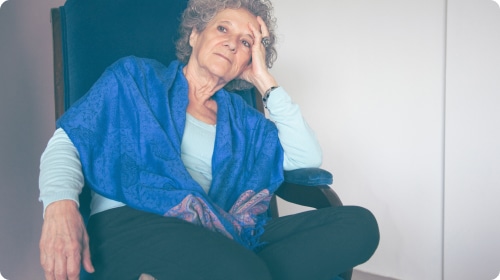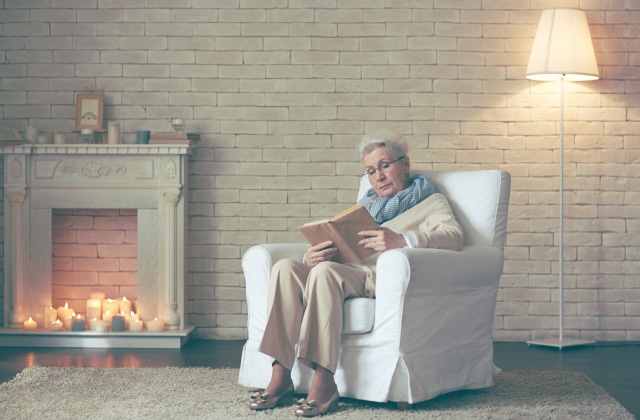Best chairs for the elderly
What are the best chairs for the elderly?
Choosing the right chairs for the elderly plays a crucial role in ensuring comfort and safety in their daily lives. When selecting chairs for the elderly, their needs for support and stability should be taken into account. The perfect chairs for the elderly typically feature a comfortable seat with armrests and a sturdy construction, providing maximum support and safety when sitting down and getting up. These chairs may also have features like lift mechanisms, making them even more suitable for older individuals.
Top 10 Chair Features to Consider for Elderly Patients
When choosing an elderly recliner chair, it’s crucial to prioritize features that enhance comfort, support, and overall well-being. Here are the top 10 chair features to consider for elderly patients:
- Ergonomic Design: Opt for chairs with an ergonomic design to provide proper lumbar support and maintain a healthy posture.
- Reclining Mechanism: An elderly recliner chair should have a smooth and easy-to-operate reclining mechanism, allowing seniors to adjust the chair to their preferred position effortlessly.
- Lift Functionality: Look for chairs equipped with a lift feature to assist elderly individuals in standing up and sitting down safely.
- Armrests: Wide, padded armrests provide extra support when getting in and out of the chair, as well as a comfortable resting place for arms.
- High-Quality Upholstery: Choose chairs with durable, easy-to-clean upholstery that can withstand wear and tear.
- Sturdy Frame: Ensure the chair has a strong and stable frame to support the elderly user’s weight and provide long-lasting durability.
- Pockets and Storage: Some chairs come with built-in pockets or storage compartments, allowing seniors to keep essential items within easy reach.
- Heat and Massage: Consider chairs with heat and massage functions to provide therapeutic relief for aching muscles and joints.
- Swivel Base: Swivel functionality can make it easier for seniors to access nearby items without straining.
- Remote Control: Chairs with user-friendly remote controls make it simple for elderly patients to adjust the chair’s settings as needed for optimal comfort.
When evaluating an elderly recliner chair, these features can significantly improve the quality of life for seniors, offering them comfort, support, and independence in their daily activities.

What Types of Chairs for the Elderly Are Available?
When it comes to selecting the right seating solutions for the elderly, there is a wide array of options to consider, each designed to cater to specific needs and preferences. Among the most popular choices are reclining chairs for elderly individuals. These chairs offer various recline positions, allowing seniors to find the perfect angle for relaxation and comfort. Many recliner chairs designed for the elderly also include additional features such as massage functions, heat therapy, and built-in pockets for convenience.
For added assistance, there are power lift chairs for the elderly. These versatile pieces of furniture combine the benefits of reclining and lifting mechanisms, offering seniors the freedom to recline and stand up effortlessly with just the push of a button. They are particularly useful for individuals with limited mobility or strength.
In summary, when considering chairs for the elderly, you’ll encounter a range of options, including reclining chairs for the elderly and power lift chairs for the elderly. The choice ultimately depends on the specific needs and preferences of the individual, but all these options are designed to enhance comfort, support, and overall quality of life for elderly users.
So How Do I Chose a Chair for my Elderly Relative?
Selecting the right seating option can significantly impact the comfort and well-being of your elderly relative. When considering recliners for elderly individuals, it’s essential to evaluate their specific needs and preferences. Start by assessing their mobility level and any physical limitations they may have. Chairs for the elderly should provide adequate support and stability, making it easier for them to sit down and stand up. Look for models with sturdy frames, comfortable cushioning, and adjustable features to accommodate their comfort preferences. Additionally, consider chairs for the elderly that offer ease of maintenance and cleaning. By carefully considering these factors, you can choose a recliner that enhances your elderly relative’s comfort and overall quality of life.
Home care can be an important part of treatment not only for seniors, but also for people experiencing temporary health difficulties. A good home care agency can help make your life more comfortable and better.
Our Angel Care Inc. home care agency has a huge staff of qualified professionals, and we provide support and assistance in all cases of health problems. If you need a consultation, please contact us: 917-507-7500 or email [email protected]

In today's fast-paced world, many individuals find themselves juggling work and caregiving responsibilities for family members. This delicate balancing act can be challenging but is essential for both personal and professional well-being. Impact of Family Caregiving on Work Caregiver-Friendly Workplaces: The first step in addressing the impact of family caregiving on work is recognizing the need for caregiver-friendly workplaces that support caregivers. These are environments where employers understand and assist employees who have caregiving responsibilities. Such workplaces often offer flexible work options and caregiver work arrangements that accommodate caregiving needs. Productivity and Absenteeism: Balancing work and caregiving can take a toll on an individual's productivity. Caregivers often experience higher rates of absenteeism due to unexpected caregiving emergencies or routine medical appointments. These absences can impact work performance and create additional stress. Emotional and Mental Health: Caregivers may also struggle with emotional and mental health challenges. The emotional toll of caregiving, coupled with work-related stress, can lead to burnout, anxiety, and depression if not adequately addressed. Tips for Balancing Work & Caregiving Open Communication: The key to balancing work and caregiving is open communication with your employer. Discuss your caregiving responsibilities and explore flexible work options, caregiver work arrangements, and strategies that suit your needs. Time Management: Effective time management is crucial when juggling work and caregiving. Create a daily or weekly schedule that allocates specific blocks of time to work and caregiving tasks. Prioritize your responsibilities and set realistic goals. Seek Support: Don't be afraid to seek support from family members, friends, or community resources. Share caregiving duties with others to prevent burnout and create a support system. Self-Care: Remember to take care of yourself. Prioritize self-care activities like exercise, relaxation, and hobbies to recharge and reduce stress. In conclusion, juggling work and caregiving responsibilities is a complex undertaking. Caregivers face unique challenges that can impact their personal and professional lives. However, with open communication, effective time management, and a supportive network, caregivers can find a balance that allows them to thrive both in their careers and as caregivers. Remember, seeking help and support is a sign of strength, not weakness, and can ultimately lead to a more sustainable and fulfilling life. Our agency Angel Care Inc. of home care nursing has huge range of qualified specialists and we give support and assistance in home care cases. If you need any consultation, please contact to us: 917-507-7500 or by e-mail at [email protected]

The health benefits of exercise for seniors are undeniable. Engaging in regular exercise for seniors can improve cardiovascular health, strengthen muscles and bones, enhance flexibility, and boost overall well-being. Additionally, exercise for seniors can help manage chronic conditions like arthritis and diabetes, promote better sleep, and reduce the risk of falls. Staying active as you age is a vital component of a healthy and fulfilling life. Remember that before doing exercises, it's essential to consult with a doctor. The Angel Care team has a physical therapy specialist. You can receive a consultation and the necessary support by contacting us. More exercise means more independence for seniors Engaging in regular exercise for seniors is a key factor in maintaining physical and emotional well-being as one ages. It's not just about going to the gym; there are numerous exercises for seniors at home that can be easily incorporated into daily routines. Simple, low-impact activities like walking, stretching, and balance exercises help improve mobility and reduce the risk of injury. Additionally, easy core exercises for seniors can enhance posture and stability, contributing to a higher quality of life. As seniors stay active, they often find it easier to perform daily tasks independently, such as cooking, cleaning, or even taking care of their garden. Moreover, exercise for seniors can enhance cognitive function, which further supports autonomy. The ability to maintain independence is a significant concern for many older individuals, and regular physical activity is a powerful tool in achieving that goal. Exercise helps prevent and counteract disease For seniors, maintaining an active lifestyle is paramount in promoting overall health and warding off various ailments. Core exercise for seniors is particularly effective in enhancing stability and preventing issues related to balance and posture. These core strengthening exercises for seniors focus on the muscles of the abdomen, lower back, and pelvis, providing essential support for the spine and reducing the risk of falls. Moreover, core strengthening for seniors contributes to a stronger and healthier spine, which can be especially beneficial for those prone to back pain. It's not only about the core; knee exercises for seniors also play a crucial role. Strengthening the knee muscles and surrounding tissues helps alleviate discomfort and decreases the likelihood of osteoarthritis-related problems. In addition to core and knee exercises, seniors can benefit from the best back exercises for seniors. These exercises aim to improve the strength and flexibility of the back muscles, reducing the incidence of backaches and promoting better posture. By regularly engaging in these exercises, older adults can maintain an active lifestyle with fewer hindrances caused by pain or discomfort. Furthermore, exercise has broader health implications. It helps regulate weight, lower blood pressure, and improve cardiovascular health, reducing the risk of heart disease and stroke. Regular physical activity can also enhance lung function, increasing the body's ability to utilize oxygen efficiently. Moreover, exercise contributes to the management of chronic conditions such as diabetes and arthritis, often improving mobility and reducing pain. Additionally, exercise supports mental well-being by reducing the risk of depression and anxiety, improving cognitive function, and enhancing overall mood. It fosters a sense of accomplishment and social interaction, which is essential for seniors to maintain a positive outlook on life. Exercises Seniors Should Avoid When it comes to strength training for seniors and beginners, safety is paramount. Seniors looking to improve their physical well-being should be cautious about certain exercises that can potentially lead to injuries. One key aspect to consider is exercises that place excessive strain on the lower back, which may result in back injuries or discomfort. Additionally, exercises involving high-impact movements that stress the joints should be approached with care to avoid the risk of falling. Prioritizing safe and age-appropriate workouts is essential for maintaining strength and mobility in the long run. Our agency Angel Care Inc. care nursing has huge range of qualified specialists and we give support and assistance in all cases of health problem. If you need any consultation, please contact to us: 917-507-7500 or by e-mail at [email protected]



